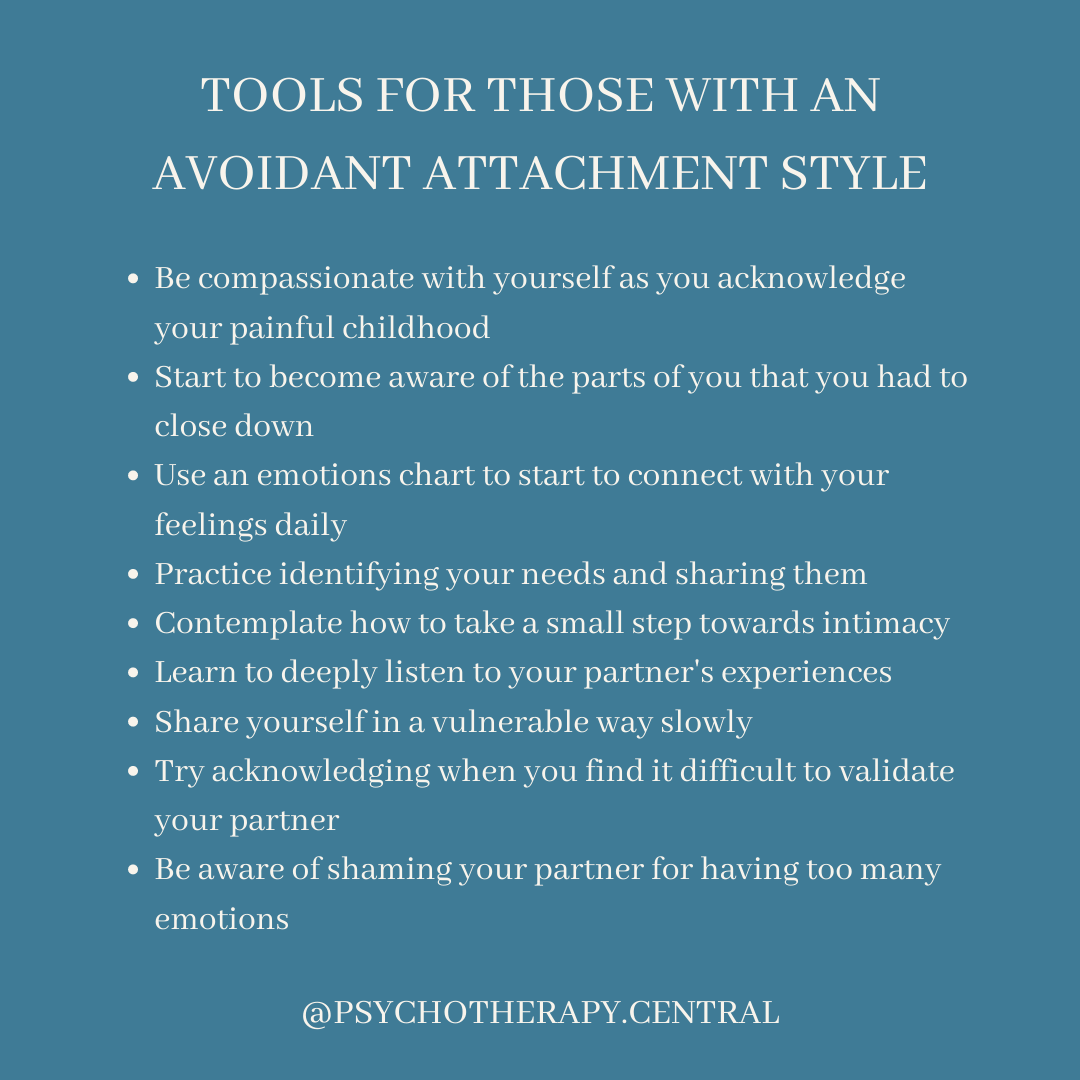The avoidant attachment style grows in children as a response to a caregiver (often the mother) who is emotionally unavailable and non-attuned to the needs of the child. Over time they suppress their natural desire to be comforted even when they are ill. These children learn to take care of themselves quickly and become ‘old before their time’.
As a result of this wiring in intimate relationships, as adults the avoidant styles find it incredibly difficult to trust others to care for them, or even admit to themselves that they need anything. They have learnt to disconnected from their body and their needs, which can make them feel cold relationally.
The first step in healing this wound is to get in touch with the part of self that was abandoned as a child. You can do this with a therapist or counsellor, who will help you begin to identify your feelings and needs, validate them and move into more relational intimacy. At home, you can start simply with tools like emotion charts, to identify your feelings at different times and your needs, to begin to feel safe having any emotions that might make you vulnerable.
The next step is to slowly share these feelings and needs with someone you trust, someone who has space and empathy for your process. This can be an incredibly healing experience. The process will involve more vulnerability, allowing yourself to be seen by you and then others. It will involve sharing your life with someone more, involving them in your decisions, even though you are used to taking care of yourself and ensuring your survival. It will be scary to rely on other people. But the benefits are incalculable!
This style of attachment CAN be changed with time, commitment and love.
*Attachment theory by John Bowlby, Mary Ainsworth & Main & Solomon

